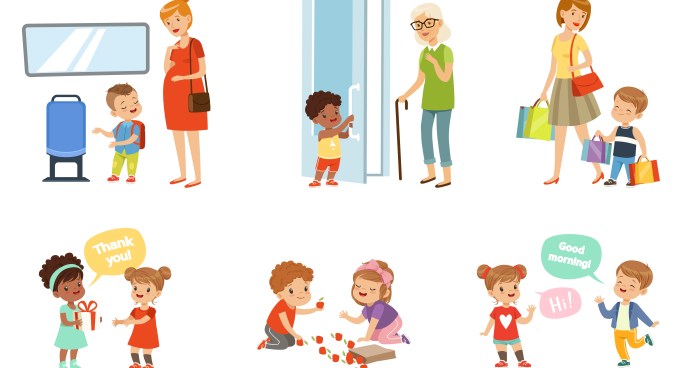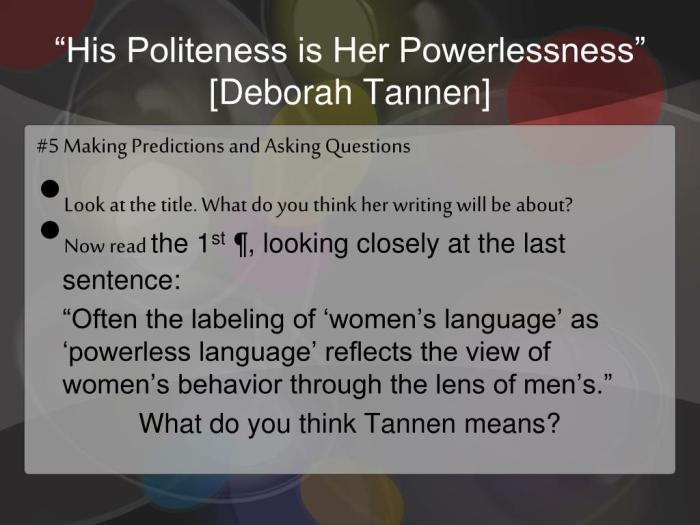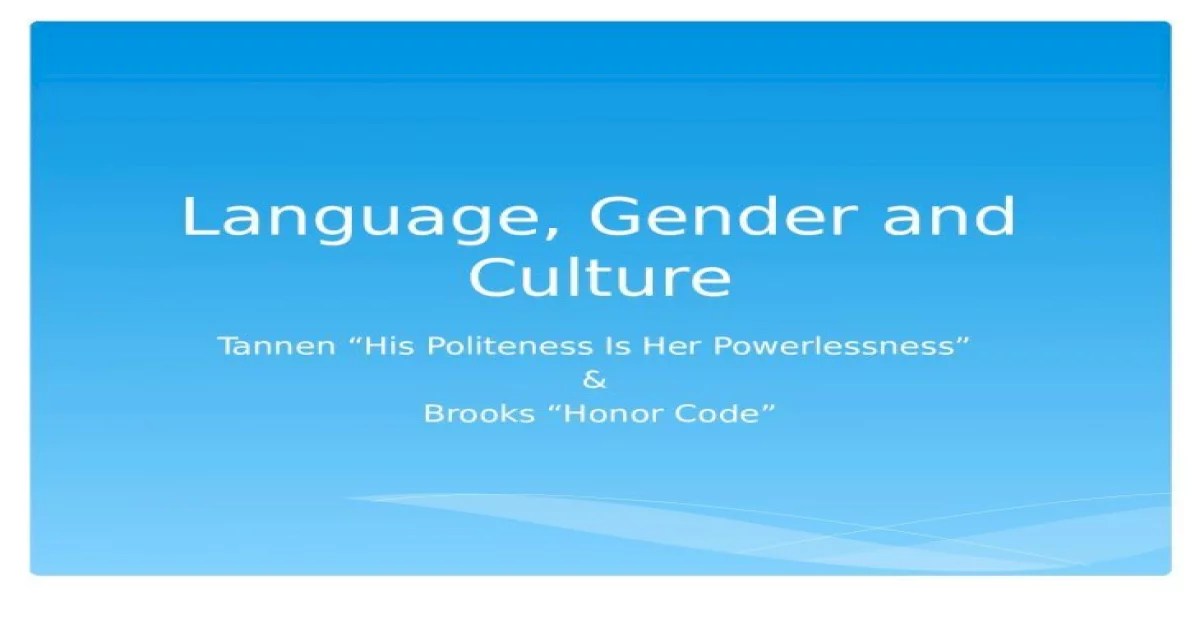His politeness is her powerlessness, a phrase that encapsulates the complex interplay between gender, power, and communication. This notion has shaped societal expectations, influenced relationship dynamics, and impacted communication patterns for centuries. This essay delves into the multifaceted nature of politeness, exploring its role in maintaining power imbalances, creating barriers to open communication, and perpetuating systemic inequalities.
However, it also highlights the ways in which women have reclaimed politeness, using it as a tool for empowerment and resistance.
Politeness, often perceived as a virtue, can be a double-edged sword for women. While it may facilitate social harmony and prevent conflict, it can also reinforce gender stereotypes and limit women’s agency. This essay examines the historical and cultural factors that have shaped these expectations and explores how women’s politeness is often interpreted as weakness or submissiveness.
Power Dynamics in Relationships
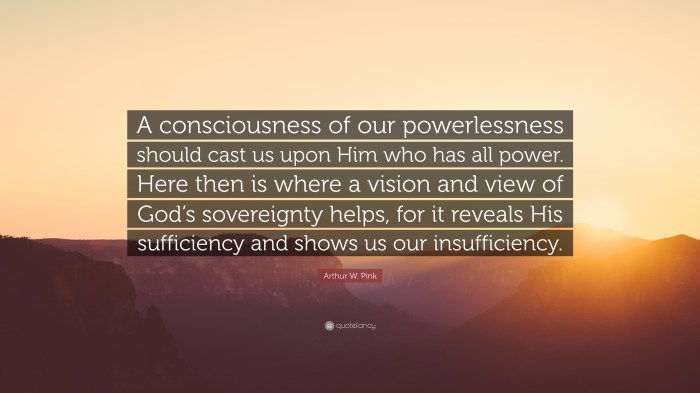
Politeness, often considered a virtue in social interactions, can become a tool for maintaining power imbalances in relationships. When one party consistently exhibits polite behavior while the other does not, it can create a dynamic where one holds more power and control.
In romantic relationships, men may use politeness as a strategy to control or manipulate women. By adhering to traditional gender roles and behaving in a courteous and respectful manner, men can create the illusion of equality while subtly reinforcing their dominant position.
Women’s Use of Politeness
Despite the potential risks, women may also use politeness as a way to navigate power dynamics and protect themselves from harm. By conforming to societal expectations of politeness, women can avoid confrontation and reduce the likelihood of being perceived as aggressive or confrontational.
Communication and Boundaries
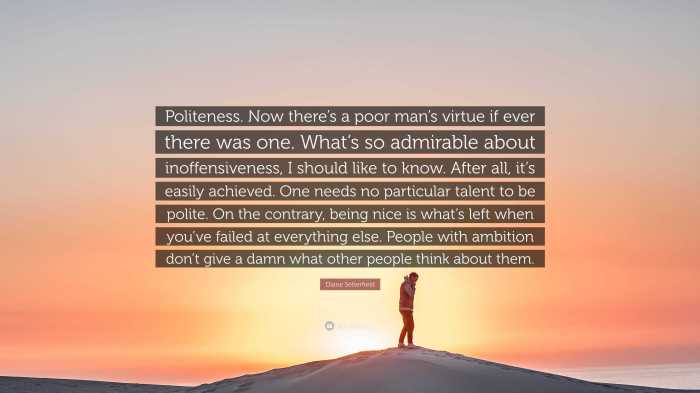
Politeness, while often considered a virtue, can have unintended consequences in communication between men and women. It can create barriers to open and honest communication, leading to misunderstandings, resentment, and power imbalances.
Politeness and Communication
- Women may be more likely to use polite language, even when expressing disagreement or discomfort, which can lead to their concerns being overlooked or dismissed.
- Men may interpret women’s politeness as a sign of weaknessor submissiveness, leading them to dominate conversations or make decisions without consulting their female partners.
- Politeness can create a false sense of harmony, preventing individuals from addressing underlying issues or conflicts.
Strategies for Effective Communication
To communicate effectively while maintaining their boundaries and asserting their power, women can employ the following strategies:
- Use assertive language: Express thoughts and feelings clearly and directly, without being aggressive or confrontational.
- Set clear boundaries: Communicate what behaviors are acceptable and unacceptable, and enforce these boundaries consistently.
- Seek support: Talk to trusted friends, family members, or a therapist to gain support and guidance in navigating challenging communication situations.
- Practice active listening: Pay attention to what others are saying, both verbally and nonverbally, and demonstrate understanding through reflective responses.
- Be willing to compromise: Recognize that effective communication involves finding solutions that work for both parties, without sacrificing one’s own needs or boundaries.
Empowerment and Resistance: His Politeness Is Her Powerlessness
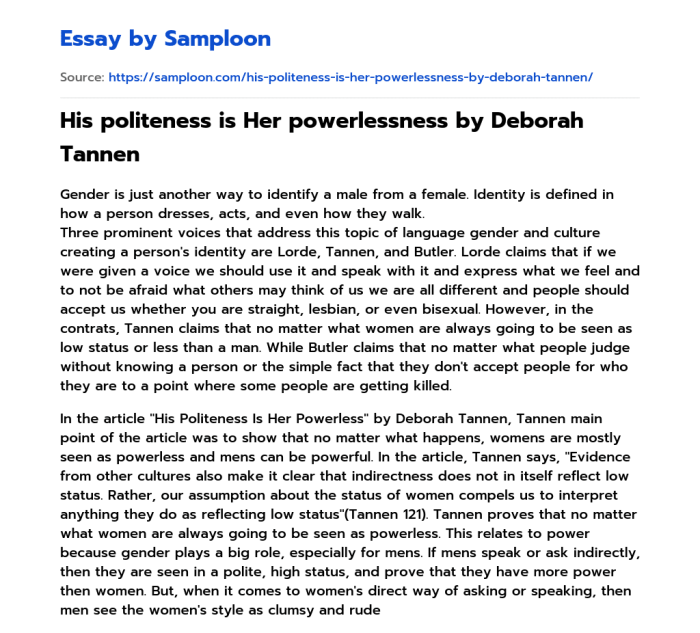
Politeness can be a powerful tool for women to empower themselves and resist patriarchal norms. By using politeness strategically, women can challenge traditional gender roles, assert their agency, and reclaim their power.
Examples of Women Using Politeness for Empowerment and Resistance, His politeness is her powerlessness
Throughout history, women have used politeness to subvert power dynamics and challenge societal expectations. Some notable examples include:
- Queen Elizabeth I: Known for her use of “sweet words” and “princely courtesy” to maintain control and assert her authority in a male-dominated court.
- Sojourner Truth: A prominent abolitionist and women’s rights activist, Truth used politeness and humor to confront racism and sexism.
- Malala Yousafzai: A Pakistani activist for female education, Yousafzai has used her platform to challenge cultural norms and advocate for women’s rights.
FAQ Corner
How does politeness contribute to power imbalances in relationships?
Politeness can be used as a strategy to maintain power imbalances in relationships by creating a sense of obligation and indebtedness. When one person is consistently polite and accommodating, it can create a dynamic where the other person feels pressure to reciprocate, even if it goes against their own interests.
How can women use politeness to navigate power dynamics?
Women can use politeness to navigate power dynamics by being strategic in their communication. By using polite language and gestures, women can create a sense of rapport and cooperation, which can help them to build relationships and achieve their goals.
How can politeness be used to perpetuate systemic inequalities?
Politeness can be used to perpetuate systemic inequalities by reinforcing gender stereotypes and limiting women’s agency. When women are expected to be polite and accommodating, it can prevent them from speaking up for themselves and challenging the status quo.
